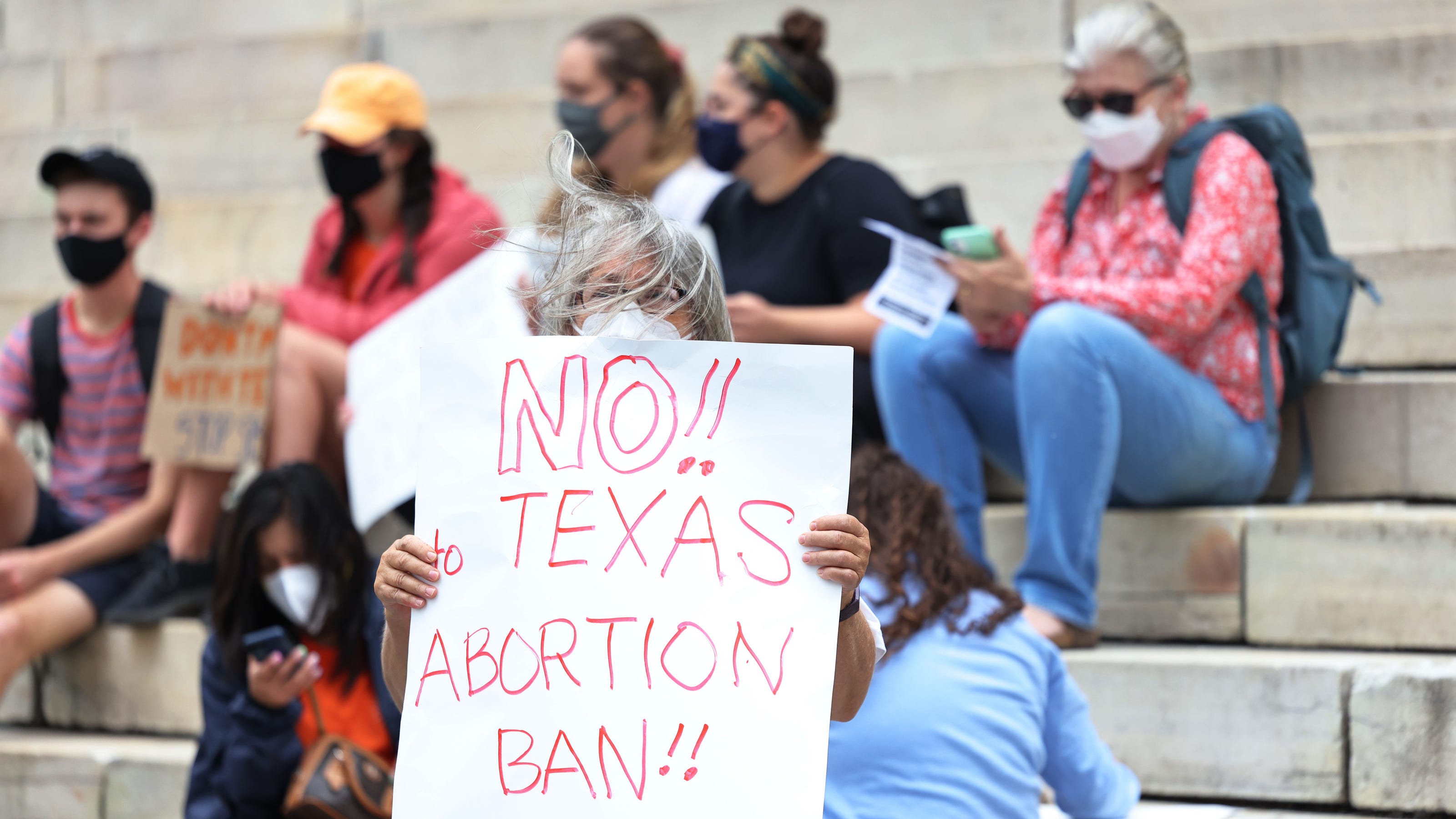Abortion is a deeply polarizing topic across the United States, and the recent restrictions in Texas have brought it into sharp focus. The state's stringent laws have forced many young individuals to seek alternative options, including traveling out of state to access abortion services. This article delves into the complexities of this issue, exploring the challenges faced by Texas kids traveling for abortion and the broader implications of these policies.
The restrictive laws in Texas have sparked a national debate about reproductive rights, particularly affecting vulnerable populations such as minors. The lack of accessible options within the state has led to an increase in out-of-state travel for abortion services, raising concerns about the safety and well-being of these individuals.
This article aims to provide a thorough understanding of the situation, offering insights into the legal landscape, the challenges faced by young individuals, and potential solutions to address this growing issue. By examining the data and expert opinions, we hope to shed light on the importance of accessible reproductive healthcare for all.
Read also:Nyannie Leaks Exploring The Impact And Significance
Table of Contents
- Background on Texas Abortion Laws
- Challenges Faced by Texas Kids
- Legal Landscape and Implications
- The Journey: Traveling for Abortion
- Support Systems for Young Individuals
- Statistics and Data Analysis
- Available Resources and Organizations
- Ethical and Moral Considerations
- Policy Recommendations
- Conclusion and Call to Action
Background on Texas Abortion Laws
Texas has long been at the center of the national debate on abortion. In 2021, the state enacted one of the most restrictive abortion laws in the country, known as the "Heartbeat Act" or Senate Bill 8 (SB 8). This law bans abortion after approximately six weeks of pregnancy, often before many individuals even realize they are pregnant. The legislation also allows private citizens to enforce the law by filing lawsuits against anyone who assists in providing an abortion after the six-week mark.
Impact on Minors
For minors, the situation is even more complicated. Texas requires parental consent for abortion, which can be a significant barrier for young individuals who may fear backlash or judgment from their families. As a result, many Texas kids are forced to seek abortions in neighboring states where the laws are less restrictive.
Legal Precedents
These restrictive laws have been challenged in court, but as of now, SB 8 remains in effect. The Supreme Court has yet to make a definitive ruling on the constitutionality of the law, leaving many in limbo. The legal uncertainty adds to the stress and difficulty faced by those seeking abortion services in Texas.
Challenges Faced by Texas Kids
Traveling out of state for abortion services presents numerous challenges for Texas kids. These include financial constraints, logistical difficulties, and emotional stress. Understanding these obstacles is crucial in addressing the needs of this vulnerable population.
Read also:Blue Salt Trick Reviews Unveiling The Truth Behind This Revolutionary Weight Loss Solution
Financial Barriers
- Cost of travel: Plane tickets, gas, and lodging can be prohibitively expensive for young individuals.
- Procedure costs: Abortion services in other states may also come with additional fees, making it even more difficult for those with limited financial resources.
- Lost wages: Many minors who work part-time jobs may lose income due to the time required to travel and undergo the procedure.
Emotional and Psychological Impact
The stress of navigating these challenges can have a significant impact on the mental health of young individuals. The fear of judgment, the uncertainty of the legal landscape, and the physical toll of traveling long distances can all contribute to anxiety and stress.
Legal Landscape and Implications
The legal framework surrounding abortion in Texas is complex and constantly evolving. Understanding the laws and their implications is essential for anyone seeking to navigate this issue.
Federal vs. State Laws
While federal law protects the right to abortion under Roe v. Wade, states have the authority to enact their own regulations. Texas has taken advantage of this leeway to impose some of the strictest laws in the nation, creating a legal patchwork that can be difficult to navigate.
Implications for Reproductive Rights
The restrictions in Texas have broader implications for reproductive rights across the country. If allowed to stand, these laws could set a dangerous precedent for other states seeking to impose similar restrictions.
The Journey: Traveling for Abortion
For many Texas kids, traveling out of state is the only option to access safe and legal abortion services. This section explores the logistics and realities of this journey.
Destinations
- New Mexico: A popular destination due to its proximity and more liberal abortion laws.
- Colorado: Offers comprehensive reproductive healthcare services and is accessible to many Texas residents.
- California: While farther away, California provides robust support and resources for those seeking abortion services.
Logistical Considerations
Planning a trip out of state requires careful consideration of various factors, including transportation, accommodation, and time constraints. Many organizations and support groups have emerged to help young individuals navigate these challenges.
Support Systems for Young Individuals
Despite the challenges, there are resources available to support Texas kids traveling for abortion. These include non-profit organizations, legal advocacy groups, and community networks.
Non-Profit Organizations
- Abortion Funds: Provide financial assistance to those unable to afford the costs associated with traveling for abortion services.
- Hotlines: Offer confidential support and guidance for individuals seeking information about their options.
Community Networks
Local communities have played a vital role in supporting young individuals by offering safe spaces, transportation assistance, and emotional support during this challenging time.
Statistics and Data Analysis
Data plays a crucial role in understanding the scope and impact of Texas' abortion restrictions. Recent studies indicate a significant increase in out-of-state travel for abortion services following the implementation of SB 8.
Key Statistics
- According to a study by the Texas Policy Evaluation Project, the number of individuals traveling out of state for abortion services increased by 30% in the months following the enactment of SB 8.
- Minors account for a disproportionate number of these travelers, highlighting the unique challenges faced by this demographic.
Available Resources and Organizations
There are numerous organizations dedicated to supporting reproductive rights and providing resources for those in need. These groups offer a range of services, from financial assistance to legal advocacy.
Reproductive Justice Organizations
- Planned Parenthood: Provides comprehensive reproductive healthcare services and advocacy.
- National Abortion Federation: Offers resources and support for individuals seeking abortion services.
Ethical and Moral Considerations
The debate over abortion is not just a legal issue but also an ethical and moral one. This section examines the ethical considerations surrounding the restrictions imposed on Texas kids.
Autonomy and Choice
At the heart of the debate is the question of individual autonomy and the right to make decisions about one's own body. Restrictive laws like SB 8 challenge this fundamental principle, raising important ethical questions about the role of government in personal decision-making.
Policy Recommendations
To address the challenges faced by Texas kids traveling for abortion, policymakers must consider a range of solutions. These include legislative reforms, increased funding for reproductive healthcare, and expanded support services.
Potential Solutions
- Repeal restrictive laws: Advocating for the repeal of laws like SB 8 to ensure access to safe and legal abortion services within the state.
- Expand Medicaid coverage: Increasing funding for reproductive healthcare services to make them more accessible to all individuals.
Conclusion and Call to Action
In conclusion, the issue of Texas kids traveling for abortion is a complex and multifaceted one. It highlights the need for comprehensive reproductive healthcare services and the importance of protecting individual rights and autonomy. By understanding the challenges faced by young individuals and supporting organizations working to address these issues, we can work towards a more equitable and just society.
We urge readers to take action by supporting reproductive justice organizations, advocating for policy changes, and spreading awareness about this critical issue. Together, we can ensure that all individuals have access to the care they need and deserve.



